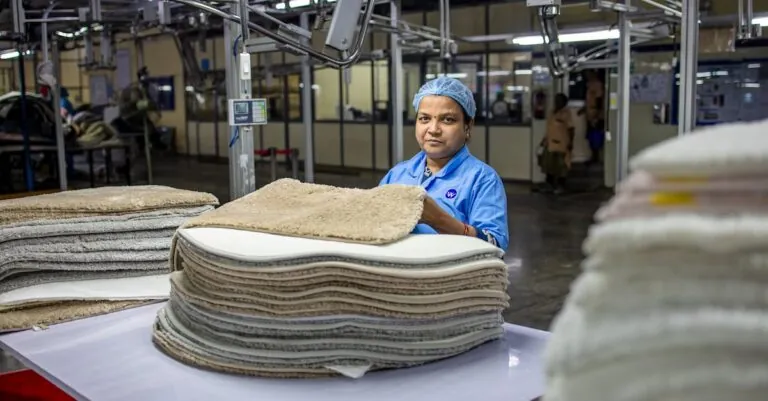Table of Contents
ToggleIn a world where tech gadgets seem to multiply faster than rabbits, it’s time to tackle the growing mountain of electronic waste. Those dusty old phones and outdated laptops aren’t just clutter; they’re a treasure trove of materials waiting to be reborn. Tech recycling isn’t just a buzzword; it’s a superhero move for the planet.
Overview of Tech Recycling Options
Tech recycling options offer various methods for disposing of electronic waste responsibly. Companies often implement take-back programs, allowing consumers to return old devices for recycling. Retailers, like Best Buy, provide drop-off services for different types of electronics, ensuring proper recycling processes.
Donation remains another viable option. Charities and non-profit organizations accept functioning devices for reuse, benefiting those in need. Schools, community centers, and shelters frequently welcome donations of computers and tablets.
Certified e-waste recyclers specialize in responsibly dismantling electronic products. They recover valuable materials such as gold, copper, and aluminum, minimizing the harmful effects on the environment. Many recyclers follow strict industry standards, ensuring compliance with regulations aimed at reducing e-waste.
Local governments often facilitate e-waste collection events, allowing residents to drop off unwanted electronics. These initiatives create convenient opportunities to recycle devices while promoting awareness of e-waste issues. Programs may cover everything from smartphones to large appliances, making participation straightforward.
Online recycling services present another option. Many websites offer prepaid shipping labels for consumers to send in their devices. Recycling facilities process these items, ensuring proper handling and recovery of materials.
Understanding these options empowers consumers to make informed decisions about their old electronics. Each choice contributes to reducing e-waste and protects valuable resources. By prioritizing responsible disposal methods, individuals play a role in fostering a sustainable future.
Benefits of Tech Recycling
Tech recycling offers significant benefits that positively impact both the environment and the economy. By recycling electronic devices, individuals and communities reduce harmful e-waste and recover valuable materials.
Environmental Impact
Tech recycling minimizes the volume of electronic waste sent to landfills. E-waste often contains hazardous materials, which can leach into soil and water systems, posing risks to ecosystems and human health. Recycling prevents these substances from causing environmental damage. Collectively, these actions lower pollution levels and help combat climate change. Many recycling programs follow strict regulations to ensure safe processing, contributing to a cleaner planet. Additionally, reducing the need for new raw materials conserves natural resources and preserves biodiversity.
Resource Recovery
Resource recovery from electronics creates a circular economy. Valuable materials, like gold, silver, and copper, found in devices can be extracted and reused. Each year, millions of tons of these precious resources are discarded with electronics. Recycling yields higher recovery rates than traditional mining methods, which often harm the environment. Moreover, tech recycling fosters innovation in material recovery processes and supports local economies by creating jobs in the recycling industry. These valuable materials can also reduce production costs for manufacturers, resulting in more sustainable product development.
Types of Tech Recycling Programs
Several tech recycling programs effectively address electronic waste. Each program offers unique benefits, providing various avenues for responsible recycling.
Manufacturer Take-Back Programs
Manufacturer take-back programs establish a direct connection between consumers and brands. Many companies encourage customers to return old devices, ensuring proper recycling. These initiatives often include mail-in options, making it convenient for consumers to participate. Some manufacturers provide incentives like discounts on future purchases for returned items, promoting a circular economy. Notably, these programs follow strict environmental standards, ensuring safe disposal of hazardous materials. A few examples include Apple’s recycling program and Samsung’s Galaxy Upcycling initiative.
E-Waste Collection Events
E-waste collection events serve as community-oriented solutions for electronic disposal. Local governments often organize these events, providing convenient drop-off locations for residents. Participants can recycle various devices, including computers, printers, and smartphones. Typically held in public spaces like parks or community centers, these events raise awareness about e-waste issues. Volunteers and local organizations often participate, creating a sense of community involvement. Additionally, they offer a chance for individuals to learn about responsible recycling practices. Regularly scheduled events help maintain a consistent recycling effort within cities.
How to Choose the Right Tech Recycling Option
Selecting the appropriate tech recycling option requires careful consideration. Evaluating certified recyclers ensures responsible handling of electronic waste.
Researching Certified Recyclers
Investigate certified e-waste recyclers to assure compliance with safety standards. The e-Stewards and R2 certifications represent reputable organizations committed to sustainable recycling practices. Certified recyclers adhere to stringent guidelines, minimizing environmental impact. They dismantle electronics responsibly to recover valuable materials like metals and plastics. Examining their processes guarantees recyclable materials are handled ethi-cally, enhancing resource recovery rates. Look for customer reviews or testimonials to gauge their reliability and effectiveness. A well-established recycler fosters consumer confidence in their approach to waste management.
Understanding Local Regulations
Familiarity with local regulations influences how individuals recycle tech devices. Many municipalities enforce specific e-waste recycling rules, impacting disposal methods for electronics. Understanding these regulations helps avoid fines and promotes compliance within the community. Local governments may provide designated collection centers or scheduled e-waste events, making recycling accessible. Awareness of the legal requirements aids in identifying acceptable recycling practices in the area. Engaging with local resources ensures recycling efforts are both lawful and effective in reducing electronic waste.
Best Practices for Preparing Tech for Recycling
Preparing technology for recycling involves several important steps. First, individuals must ensure data security by wiping personal information from devices. This process often includes using factory reset options or specialized software designed to erase sensitive data.
Next, removing excess accessories can streamline the recycling process. Consumers typically benefit from detaching items like cases and chargers before recycling. These accessories can sometimes be recycled separately or reused.
Gathering items into one location simplifies recycling efforts. Consolidating devices makes it easier to transport them to designated recycling points. Keeping devices organized also helps ensure nothing is forgotten during the preparation.
Checking for local recycling guidelines is essential. Different municipalities may have specific rules about what can be recycled and how. Understanding these regulations assists in compliant recycling practices.
Consideration of recycling options further aids in efficient disposal. Some manufacturers offer take-back programs that reward users for returning old devices. Others provide easy drop-off locations or e-waste collection events, which are great for community participation.
Lastly, encouraging friends and family members to recycle their tech creates a larger impact. When others follow suit, the collective effort contributes significantly to reducing e-waste. Engaging larger networks enriches environmental stewardship while promoting sustainable tech disposal practices.
Conclusion
Embracing tech recycling options is vital for a sustainable future. By actively participating in recycling programs individuals can significantly reduce electronic waste and its harmful effects on the environment. Whether through manufacturer take-back programs or local collection events each choice contributes to a healthier planet.
As communities come together to recycle old devices they not only recover valuable materials but also support local economies and promote responsible consumption. Encouraging friends and family to join in this effort amplifies the impact and fosters a culture of environmental stewardship. Making informed decisions about tech recycling helps pave the way for a cleaner and more sustainable world for generations to come.




